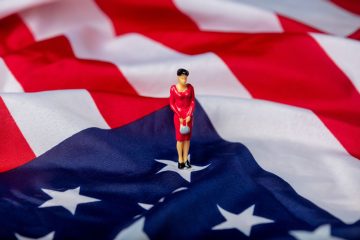
OxPol Blogcast. Women in Politics – In Conversation with Rachel Bernhard: Can Gender-Typical Appearance and Behaviour Help Candidates Win Office?
OxPol Blogcast showcases research, analysis, insights, and experiences from the members of the University of Oxford’s Department of Politics and International Relations (DPIR), and specialist guests from the Oxford academic community and beyond. Are masculine behaviour and appearance among the prerequisites for electoral success, in line with popular belief? On this episode, OxPol Blogcast host Anastasia Bektimirova is joined by Dr. Rachel Bernhard, an Associate Professor at the University of Oxford’s Department of Politics and International Relations (DPIR), to put the view of the political arena as a place favouring conventionally masculine traits to a test. Focusing on the United States, Rachel explains what is understood as masculinity and femininity in political leadership, and guides us through the observed variation in voters’ response to those cues. We also discuss …

OxPol Blogcast Episode 3: Drug Legalisation Referendums
Welcome to the OxPol Blogcast, a podcast where we will be sharing research, analysis, and experiences from members of the University of Oxford’s Department of Politics and International Relations. On each, episode we will talk to a guest about a piece they’ve written for the OxPol Blog. Then, we’ll discuss their larger research agenda, their insights on conducting political science, and their time at Oxford. On the 3rd episode of the OxPol BlogCast, host Chase Harrison talks to recent DPhil graduate Jonas von Hoffman about the results of recent drug legalisation referendums in the United States. We compare those to legalisation movements across the Americas before chatting about his experience studying a more taboo topic in academia.
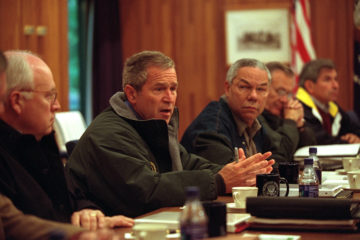
War and the Ballot Box: What the Iraq War Tells Us About Military Escalation in an Election Year
U.S. presidents have powerful political incentives to think twice before escalating a conflict in the lead-up to an election. Recent events in the Gulf suggest that President Trump is no exception when it comes to avoiding the commitment of “boots on the ground” in an election year. As both commander-in-chief and holder of the highest elected office, presidents must carefully weigh the political consequences of any decision regarding military strategy. Since voters tend to bear the brunt of the human and financial costs of war, decisions to send additional U.S. forces into combat are often fraught with risk of consequent reprisal at the ballot box. In my recent article in International Security, I explore how these electoral pressures affected decision-making during the Iraq War. …
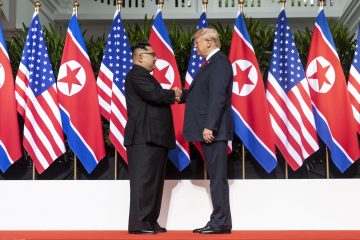
Three reasons why foreign policy negotiations during the 2020 campaign season are a bad idea
“Deals are my art form. Other people paint beautifully on canvas or write wonderful poetry. I like making deals, preferably big deals.” [Donald Trump, The Art of the Deal] If history is any guide, there is reason to hope that President Trump belatedly takes up painting this campaign season. Over the next 18 months or so, as always seems to be the case in American politics, the looming presence of a presidential election will throw up a whole host of impediments to the pursuit of optimal diplomatic agreements abroad, including with China, Afghanistan and North Korea. A brief look back at critical negotiations during the wars in Vietnam and Iraq suggests a crucial lesson: electoral politics and diplomacy do not mix …
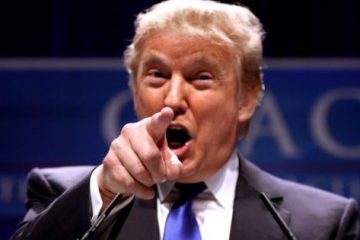
“It’s the economy stupid”: Declining labour mobility explains Trump’s victory
Donald Trump’s success in the US elections came as a surprise to both pollsters and political pundits. And since November, both have peddled numerous theories to explain their mistakes. Yet, one aspect of his electoral victory remains underappreciated: labour mobility. Labour mobility across regions is much higher in the United States compared to many other countries in the world, including the European Union members, allocating individuals into the jobs where they are the most productive. As such, mobility is an important factor for upward social mobility for middle class Americans, where they can increase their earnings and their life standards by moving to higher-earning jobs in dynamic regions. [1] But economic mobility has been declining over the last two decades.[2] …
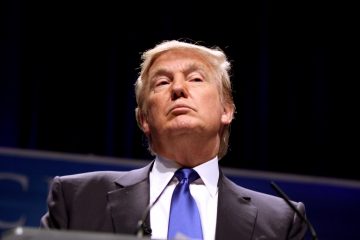
THE NEW “NEW RIGHT” – TRUMP’S POLITICAL EARTHQUAKE
Four decades ago the concurrent Thatcher and Reagan governments heralded the arrival of the “New Right” political agenda, which prioritised market forces over the primacy of “the state” in their respective countries. New Right policies followed in the 1980s, including reducing income and corporate taxes, deregulating labour and financial markets, and the promotion of market mechanisms of consumer choice into public sector services such as health and schools. “Market over state” was the mantra of the New Right but as many commentators noted, making markets requires state action (not least in public order maintenance), resulting in a redeployment of state power rather than its diminishment. Having seized power through the electoral college used to elect the President of the United …
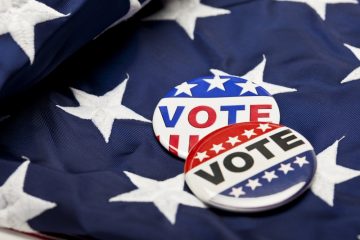
The US needs a proportional Electoral College
Recent weeks witnessed renewed debate about the viability of the United States Electoral College, but few offered viable alternatives to the current system. While much of the vexation has arisen in part due to partisan frustrations, there are many reasons to both criticize and praise the current system without succumbing to arguments rooted in political dogma. While I am not a politician, or policy expert, I am a concerned citizen who cares deeply about this country and the voice of the American people, which is why I propose we explore the possibility of a proportional Electoral College, which I will argue will boost turnout and citizen representation. The Electoral College Today The Electoral College was written into the American Constitution …
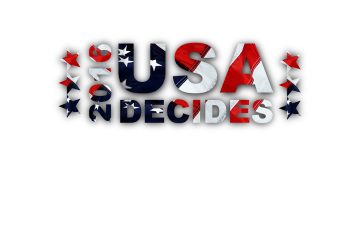
Fake News? The blame-game in a post-Trump world
Donald Trump’s victory came as a surprise and/or shock to most pollsters, journalists, scientists, and citizens all over the world. And ever since Trump became the president-elect one question seems to be on many people’s minds: ‘who (or what) is to blame?’ The answers to this question ranges from the electoral system to international influence but one particular scapegoat is more prominent than others: the Internet. Indeed, not short after Trump’s victory Buzzfeed had identified the first villain: fake news. In their analysis they suggested ‘that top fake election news stories generated more total engagement on Facebook than top election stories’ from other serious outlets. The threat of fake news was born. And other mass media outlets followed. We have probably all …









